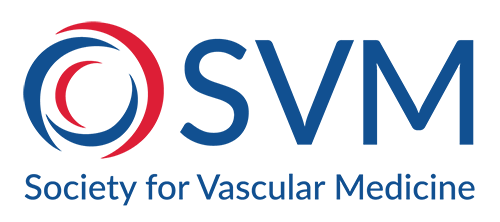Code of Ethics
Preamble
The medical profession has long subscribed to a body of ethical statements developed primarily for the benefit of the patient. Likewise, the Society for Vascular Medicine (“SVM”) recognizes that its Members have certain ethical obligations to their patients, profession, each other, as well as to the community and world at large. As a Member of the medical profession and SVM, Members must recognize and respect these obligations.
The SVM Code of Ethics strives to set the standards and provide guidance for SVM Members acting within the organization, in their clinical practice, and in their provision of health care generally.
The SVM Code of Ethics sets forth the governing principles, values, and beliefs shared by Fellows and other Members of the Society for Vascular Medicine, as well as the ethical behavior and standards of conduct expected in conformance with these principles and beliefs.
1. Relationship with Patients
- In all dealings with patients, a Member shall act fairly, in good faith, honestly, and with compassion and respect for a patient’s dignity and rights.
- A Member shall not practice medicine beyond the scope of his or her training, experience, and license.
- Patient welfare must be paramount in the practice of medicine. Under no circumstances shall a Member place his or her self-interest above patient welfare.
- Any conflict of interest must be resolved in the best interests of the patients.
- A Member shall use his or her best efforts to protect patients from harm by recommending and providing care that maximizes anticipated benefits of care and minimizes possible risks of harm from such care.
- A Member must strive to make pertinent medical information available patients to enable patients to make informed choices about their health care.
- Consistent with a Member’s legal duty to maintain the confidentiality of patient health information, a Member should provide pertinent medical information to the patient’s family, professional colleagues, and the public.
- A Member shall respect the confidential health care professional-patients relationship and safeguard it consistent with the law.
- A Member shall not discriminate on the basis of gender, race, color, national origin, sexual orientation or other basis that would constitute illegal discrimination.
- A Member has an obligation to responsibly steward the use of healthcare resources under his or her supervision without compromising patient care and welfare.
2. Relationship with Other Professionals
- A Member shall uphold the standards of professionalism, be honest in all professional interactions, and shall report to the appropriate legal, regulatory, or peer-based entity healthcare professionals whose competence or professional conduct affects or could adversely affect the health or welfare of a patient or patients.
- A Member shall act fairly, in good faith, honestly, and with respect in all his or her dealings with patients, staff, and other healthcare professionals.
- A Member experiencing substance abuse or physical or emotional/psychological impairment should seek the appropriate assistance and limit practice to ensure the impairment does not adversely affect the health or welfare of a patient or patients.
- A Member shall cooperate in the legal, regulatory, or peer-review process in connection with alleged incompetence or unprofessional conduct or that of another Member and accept the profession’s final disciplinary action.
3. Relationship with SVM
- A Member serving on behalf of SVM or in any other professional capacity shall endeavor to base his or her opinions on objective data and avoid personal bias.
- A Member shall honor his or her fiduciary, legal, and professional obligations in serving his or her respective professional organizations.
- A Member shall work to ensure the attainment of the organizations’ mission and objectives.
4. Relationship to the Community and to Government
- A Member shall comply with state and federal laws and regulations governing the practice of medicine.
- A Member involved in the conduct or research and investigation, including work involving human subjects, shall behave ethically.
- A Member is obligated to report patient abuse, neglect, or harassment to the appropriate authorities.
- A Member must recognize the imperative of fairly distributing the benefits and burdens of research and other health care resources.
- A Member shall have a professional and social obligation to be involved in the community as well as to support policies and change in the best interests of patients and matters affecting healthcare generally.
5. Continuing Medical Education Responsibilities
- A Member has an ongoing obligation to be actively involved in continuing medical education activities to ensure the continued development of his or her skills, training, and expertise. A Member shall maintain his or her professional qualifications through continuous study consistent with evidence-based scientific practice.
6. Conflicts of Interest
- A Member shall strive to identify and resolve potential and actual conflicts of interests in his or her professional practice and service to SVM. If a conflict cannot be adequately resolved consistent with the foregoing then the Member should withdraw from the relationship.
- A Member should be aware of institutional conflicts of interest in his or her relations with SVM and in other professional memberships.
- All SVM leaders are required to maintain a disclosure on file regarding conflict of interest.
Conclusion
Adherence to SVM’s Code of Ethics is a condition of SVM membership. The Code of Ethics may be revised or replaced periodically and it is the obligation of Members to be informed of and adhere to these changes.




